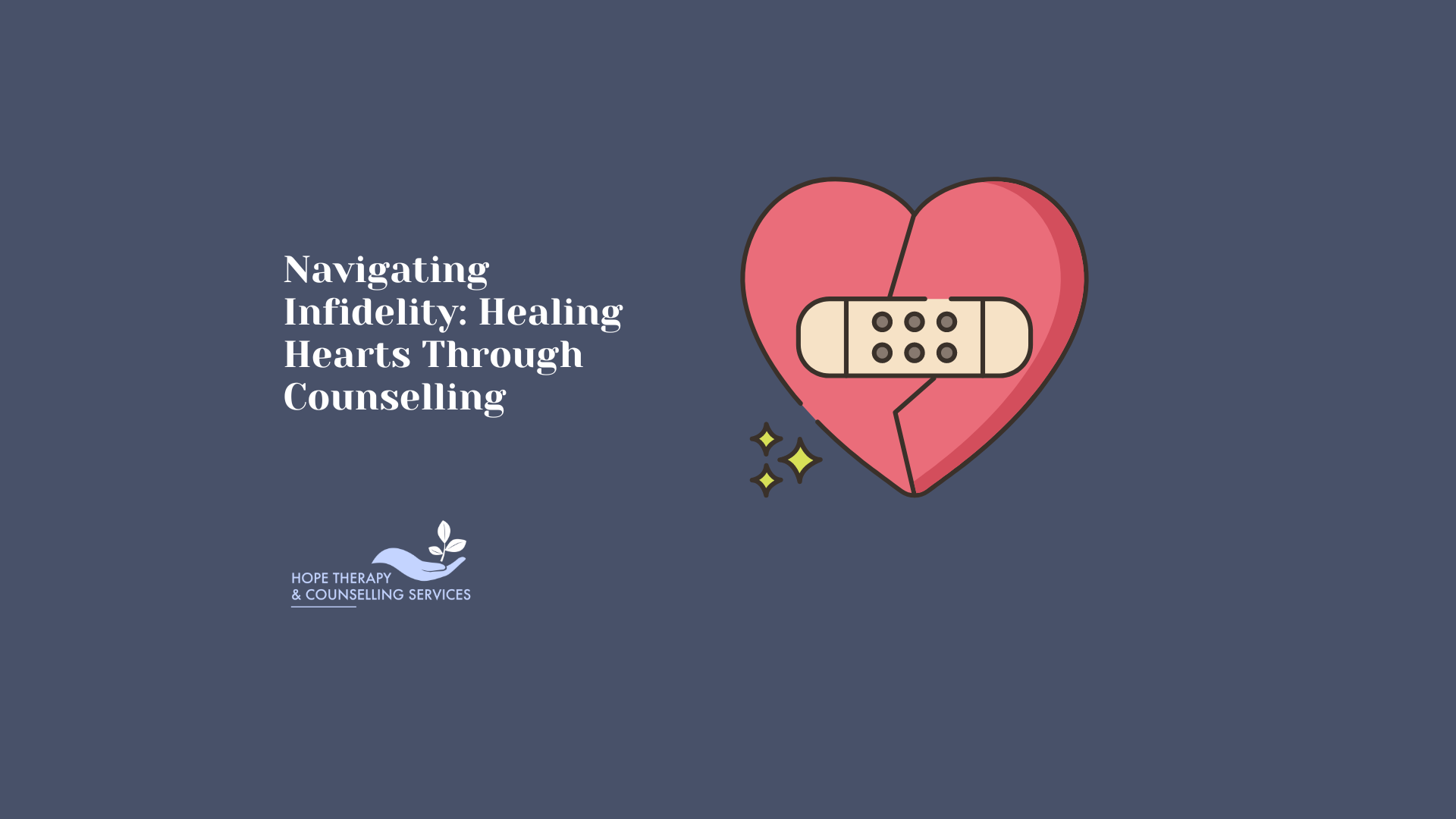Introduction:
Infidelity is a deeply painful experience that can shake the foundation of a relationship. The betrayal of trust, the emotional turmoil, and the shattered sense of security can leave both partners feeling lost and alone. However, amidst the pain and confusion, there is hope. Counselling offers a pathway to healing, a chance to navigate the complexities of infidelity, and a space to rebuild trust and intimacy. In this blog, we’ll explore how counselling can help couples heal their hearts and find their way forward after infidelity.
Understanding Infidelity:
Infidelity is more than just a breach of trust; it’s a complex interplay of emotions, desires, and vulnerabilities. Understanding the underlying causes of infidelity is crucial to addressing the root issues and rebuilding the relationship. Counselling provides a safe and supportive environment for couples to explore the reasons behind the infidelity and unpack feelings of hurt, betrayal, and resentment.
The Healing Journey:
Healing from infidelity is a journey—one that requires patience, empathy, and commitment from both partners. Counselling offers a roadmap for this journey, guiding couples through the process of forgiveness, reconciliation, and rebuilding. Through individual and couples therapy sessions, couples can learn effective communication strategies, rebuild trust, and work through unresolved issues that may have contributed to the infidelity.
Rebuilding Trust:
Trust is the foundation of any relationship; rebuilding it after infidelity takes time and effort. Counselling provides a safe space for couples to address trust issues head-on, explore feelings of betrayal and insecurity, and establish boundaries and expectations moving forward. With the guidance of a trained therapist, couples can learn to trust again, forging a stronger, more resilient bond.
Communication and Connection:
Effective communication is essential for repairing a relationship after infidelity. Counselling helps couples improve their communication skills, learn to express their needs and emotions openly and listen to each other with empathy and understanding. By fostering honest and open dialogue, couples can rebuild intimacy and connection, laying the groundwork for a healthier, more fulfilling relationship.
Moving Forward:
Healing from infidelity is not easy, but with dedication and support, couples can emerge stronger and more resilient than ever before. Counselling provides the tools, guidance, and support needed to navigate the challenges of rebuilding a relationship after infidelity. By working together, couples can heal their hearts, rebuild trust, and create a brighter future filled with love, connection, and mutual respect.
Conclusion:
Infidelity can rock even the strongest relationships, but it doesn’t have to be the end. Counselling offers couples a lifeline—a chance to heal their hearts, rebuild trust, and rediscover the love that brought them together in the first place. If you’re struggling to navigate infidelity in your relationship, know that you’re not alone. Counselling can help you find your way forward, one step at a time, towards a brighter, more hopeful future.


